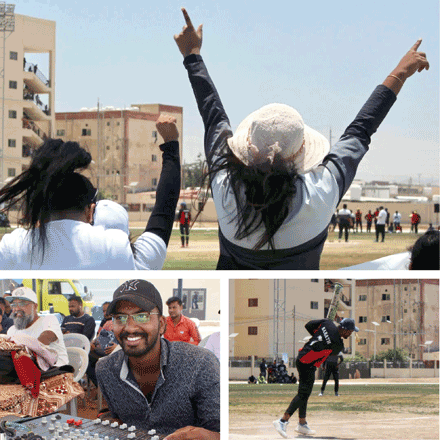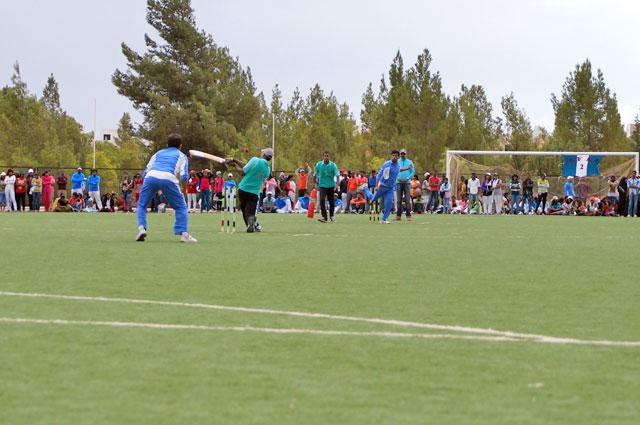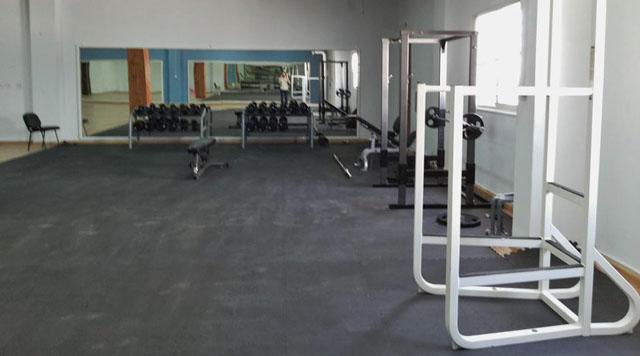You are here
Ramtha cricket tournament provides piece of home abroad for Jordan’s foreign workers
By Taija PerryCook - Jul 08,2023 - Last updated at Jul 08,2023

Garment factory workers during a cricket match in the northern city of Ramtha on Friday (Photos by Taija PerryCook)
RAMTHA — In a compound less than 10km from the Syrian border, there is “a small nation within a nation”.
Women in sarees walk together, elaborately-painted trucks dot the roads, the Indian, Pakistani, Bangladeshi, Nepali and Sri Lankan flags wave proudly alongside the Jordanian flag, and the roaring cheers of a cricket match can be heard in the distance.
The compound primarily houses the approximately 30,000 expats employed at the Classic Fashion Apparel Industry factories, but on Friday, the compound’s cricket field came alive with workers from all across Jordan, mostly from the garment industry, to play in a tournament.
“They’ve taken this very seriously,” Joby Mathew, one of the event’s organisers, told The Jordan Times. “Through cricket, you are connected to your roots.”
The 16 teams of 13 players each have created custom jerseys with the names of the player and their team for the occasion.
More than just the social accolades at stake, there is money to be won: JD500 goes to the team in first place, JD300 for the second and JD100 for the third.
For many employees, this event marks more than just a fun day; it represents workers’ larger need for community as transplants from their native homes.
While the game is only played by men, the day involves the entire community.
One woman, Sumudu, cheered particularly enthusiastically as her brother and husband both played in the match.
Sumudu, who preferred to be identified by only her first name, is one of the approximately 1,500 Sri Lankans in the compound. She arrived in Jordan 10 years ago, and plans to stay at least another five.
Sheshadri Ramakrishna, the owner of Ark Garments Manufacturing Industries and a tournament cricket player, explained that his greatest challenge in owning a company is finding and retaining Jordanian workers due to high turnover rates.
“We are required to have 30 per cent Jordanian workers, but many of them stay only two or three months,” he told The Jordan Times. “This sense of community is a great achievement, because it gives our workers both motivation and encouragement.”
Related Articles
On the outskirts of the northern city of Irbid, Jordan University of Science and Technology’s stadium on Friday witnessed a game that is quite alien to the region: Cricket.
Malala works 13-hour shifts six days a week in one of Jordan’s many garment factories at Al Hassan Industrial Zone, on the dusty outskirts of the city of Ramtha, some 70km north of the capital Amman.
AMMAN — Several steps will be taken this year to tap the potential to strengthen Sri Lankan-Jordanian cooperation in various areas, accordin

















